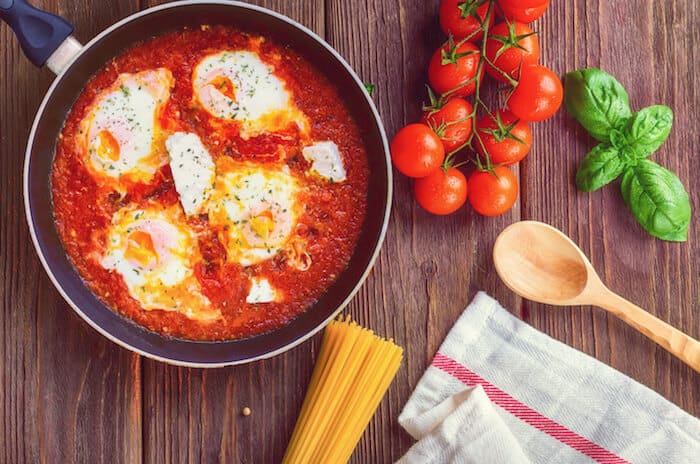Health issues due to dogs’ intake of human foods are a commonly reported phenomenon. Being a dog parent comes with tons of responsibilities. You have to give proper food, manage timely vaccinations, and provide a regular exercise routine to your cute pooch.
Along with the basics, your curious furball loves to explore everything. It is attracted by the sweet scent of the foods you eat. It tries to eat everything that comes its way, i.e., OTC pills, fruits, chocolates, etc.
You have to dog-proof your home before bringing the cute baby pup into your home. Here’s a list of all the human foods that you should keep away from your pooch’s reach.
Can my dog eat these human foods?
- Chocolates (Always at the top)
- Coffee
- Macadamia nuts
- Avocados
- Mangoes
- Tomatoes
- Grapes & Raisins
- Potato
- Alcohol
- Yeast
- Baking soda & Baking Powder
- Onion & Garlic
- Salty Foods
- Artificial Sweeteners
- Mushrooms
- Grilled Bacon Slices
- Candies, gums, baked foods
- Milk, butter, cheese, and ice-creams (Dairy products)
I know the list appears too long, but the article will help you dog-proof your house thoroughly. Besides OTC medicines and toxic plants, you need to hide these human foods from the dog’s sight.
1. Chocolates (Always at the top):
A study by The Journal of Institute of Experimental Pharmacology of Slovak Academy of Sciences1 published in 2009 reports how highly toxic dark chocolate is! Dark chocolates contain methylxanthines, theobromine, and caffeine, which are toxic to dogs if ingested. Symptoms of toxicity include vomiting, diarrhea, indigestion, and discomfort in the stomach.
Baking chocolate is equally harmful to a dog’s health. Milk chocolates are bearable to some dogs but not for your fido, which is sensitive to chocolates. Small dogs suffer greatly from eating dark chocolates.
2. Coffee:
Coffee contains caffeine (1, 3, 7-trimethylxanthine), that’s toxic to dogs’ health. Caffeine mainly affects the nervous system and natural heart rhythms. Intake of higher levels of caffeine by dogs leads to irregular heart rhythms, muscle tremors, seizures, and even death.
3. Macadamia nuts:
Macadamia nuts have the worst after-effects in dogs. Intake of Macadamia nuts leads to gallbladder stones, bone weakness, hyperthermia, listlessness, abdominal pain, and depression. So, never share your cookies containing Macadamia nuts with your pooch no matter how much he insists. It’s in favor of your pooch’s health!
4. Avocado:
Avocados contain persin in their leaves, skin, and pulp, which is toxic to dogs. Some avocados have persin that can cause breathing problems, stomach issues, and fluid accumulation in the chest. Even if the avocado does not prove harmful, its pit can be swallowed by dogs and will obstruct the digestive tract.
5. Mango:
Can dogs eat mangoes? You may like to share tasty, pulpy, and sweet summer fruit with your fido. The good news is that it’s safe for dogs to have mangoes in a certain quantity. But, be cautious as this sugary sweet fruit can cause obesity in dogs. In addition to that, always remove the mango seed because it’s dangerous when swallowed. It can obstruct the gastrointestinal lining of the dog.
Tip: Always remove seeds from fruits before giving them to your dog.
6. Tomato:
Green Tomatoes that are unripe and hard are toxic to your dog’s well-being. It can lead to serious health issues and even heart failure.
7. Grapes & Raisins:
Keep grapes and raisins out of reach of your dogs. They are toxic to dogs because of the pesticide, fungicide, and herbicide contamination contained in them. High vitamin D concentrations in grapes and raisins are harmful as well.
Warning: If the symptoms of grape toxicity are not recognized at the initial stages, it can lead to renal failure.
8. Potato:
Potatoes are great for dogs, but there’s some controversy about the potato skin that may cause digestion problems in dogs. Never let your dog have raw potato or even get close to the green parts of potato plants to nibble a little!
Always give your dog a well-cooked potato. Potatoes are only safe and healthy for dogs when given in measured quantities. Excess can lead to obesity!
9. Alcohol:
Alcohol is highly toxic for dogs as it is for humans. Alcohol, even in small quantities, can cause massive amounts of damage to liver, brain, and heart functions. Symptoms of toxicity include low blood sugar levels and a drop in blood pressure. An excess of alcohol intake can lead to diarrhea, vomiting, breathing problems, and coma.
10. Yeast:
Unbaked yeast dough is harmful if ingested by dogs. It ferments and swells in a dog’s stomach and causes vomiting, nausea, diarrhea, bloating, and stomach cramps. The fermentation process has alcohol as a by-product that can be absorbed into the bloodstream and lead to alcohol poisoning.
11. Baking soda & Baking Powder:
Baking powder and baking sodas are leavening agents like yeast that cause the expansion of the dough. If your dog accidentally ingested them in large quantities, it can lead to muscle spasms and heart failure.
12. Onion & Garlic:
Onion, in all its forms, and garlic cause considerable damage to the hemoglobin of red blood cells. They cause hemolytic anemia and form Heinz bodies in the red blood cells of dogs. Early symptoms are listlessness, breathing problem, weakness, and vomiting. Real damage becomes apparent after four to five days.
13. Salty Foods:
Sodium in salts causes sodium-ion poisoning in dogs. Salt can only be added in minimum quantities to give flavor to dog foods. Salty foods can lead to extreme thirst, excessive urination, fever, diarrhea, vomiting, etc. Try not to share salty popcorn and chips with your pooch!
14. Artificial Sweeteners:
Xylitol is an artificial sweetener that is found in gums, candies, baked products, peanut butter, etc. It is not safe for dogs. Symptoms of xylitol ingestion are seizures, vomiting, diarrhea, and loss of mind-body coordination. Excessive xylitol causes a severe release of insulin that can lead to low blood sugar levels and even liver failure.
Keep those attractive lollipops, sweet candies, chewing gums, and everything that contains Xylitol, far from your pup’s reach. Why not distribute them randomly to kids?
15. Mushrooms:
Wild mushrooms might grow in your backyard, but you must train your dogs to avoid them. Mushrooms intake can initiate kidney, brain, and liver problems.
Some intelligent dog breeds can sense poisonous mushrooms and don’t try to eat them. However, little pups are unaware and love exploring, tasting, tasting, and touching everything they come across.
16. Grilled Bacon Slices:
Cooked or grilled bacon is highly fattening for dogs. It leads to obesity, heart disease, and hypothyroidism. Salt is present in high concentrations in bacon, leading to bloating and stomach disturbance. In some specific dog breeds, cooked bacon can cause pancreatitis. Symptoms of pancreatitis include nausea, abdominal pain, diarrhea, and vomiting.
Tip: Raw meat, bacon, eggs, and fish can cause parasitic or bacterial infections in a dog’s stomach. Always give well-cooked meat or bacon to dogs.
They are fatty foods, so always manage the quantity of meat, egg, or fish you give to your dog every week.
17. Milk, butter, cheese, and ice-creams (Dairy products)
Dairy products are difficult to digest for your fur dog. Usually, dogs are intolerant to lactose in milk products. Additionally, Dogs do not have the specific enzyme to digest milk sugar. Dairy products are fattening and can cause pancreatitis as bacon or meat do. Save the milk for your cat and ice-creams for yourself. Your dog wouldn’t mind, I bet.
18. Nicotine:
You may not give your dog a cigarette intentionally but if you are a smoking addict, make sure not to throw cigarette butts on the floor. Nicotine gums or cigarette butts are highly toxic to your dog. Symptoms of poisoning in the dog will appear within an hour of nicotine intake by the dog.
Common symptoms of food toxicity in dogs are similar. As soon as you find your dog to be suffering from a stomach disorder, you should consult the vet.
If the reaction came up after you gave a certain food to your dog for the first time, it might be the case that your dog breed is sensitive to that food or any of its specific ingredients. Avoid giving your dog that food in the future.
Safe Human Foods for Dogs

Now that you know how to dog-proof your home, you have to think of a perfect and balanced diet for your dog. What kinds of human foods are safe for dogs?
If you want to give a variety of treats for dog training or to make the dog’s taste buds enjoy various flavors, you can consider sharing these foods with your dog:
- Spinach
- Green beans
- Cucumbers
- Mangoes (remove seeds)
- Apples (remove seeds as they have cyanide)
- Cooked Salmon
- Cooked eggs, meat, bacon, and fish
- Broccoli
- Carrots
- Cantaloupe
- Oatmeal
- Bananas
- Peas
- Blueberries
- Peanut Butter (without xylitol)
- Cottage Cheese (for dog breeds that are not lactose intolerant)
- Pumpkins
- Sweet potatoes
- Fattening Fast foods (but maintaining a balanced diet ratio)
Whatever you feed your dog, always check for the calories it contains and the ingredients bar. Bring a variety of dog food but with caution!
Dog’s stomach cannot digest everything as ours do. Dogs are undoubtedly omnivores but have inherited carnivorous food preferences from wolves. Your pet’s health is valuable, and as much as you care for yourself, your dog needs equal care.
References:
1 https://www.degruyter.com/view/j/intox.2009.2.issue-3/v10102-009-0012-4/v10102-009-0012-4.xml
Author Bio:
 Fiona Appleton is a Labrador owner. She is the manager of https://ultimatehomelife.com/, which has been developed to help people solve the troubles of pet ownership. She is an active advocate of animal protection campaigns. She wants people to understand that dog behavior is reflective of our behavior.
Fiona Appleton is a Labrador owner. She is the manager of https://ultimatehomelife.com/, which has been developed to help people solve the troubles of pet ownership. She is an active advocate of animal protection campaigns. She wants people to understand that dog behavior is reflective of our behavior.
